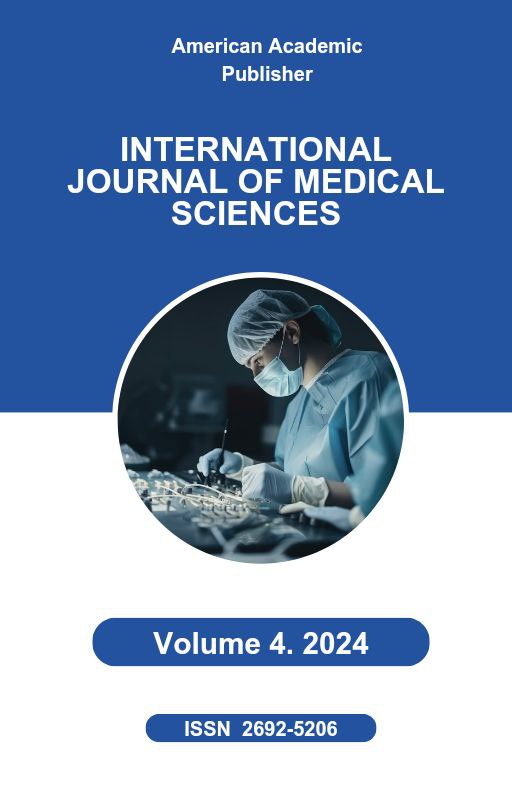 Articles
| Open Access |
https://doi.org/10.55640/
Articles
| Open Access |
https://doi.org/10.55640/
MUSCLE CONTRACTION MECHANISMS (E.G., SLIDING FILAMENT THEORY)
Vahobov Lutfullo , Assistant of Andijan State Medical Institute,UzbekistanAbstract
Muscle contraction is a complex physiological process that involves intricate interactions between muscle fibers, actin and myosin filaments, and regulatory proteins. One of the most widely accepted mechanisms of muscle contraction is the sliding filament theory, which explains how muscles generate force by the sliding of actin and myosin filaments relative to each other. This article discusses the mechanisms of muscle contraction, focusing on the sliding filament theory, and explores the role of ATP, calcium ions, and regulatory proteins in this process. Furthermore, it reviews recent research advancements and provides an in-depth analysis of the cellular and molecular events involved in muscle contraction, highlighting the significance of these mechanisms for overall muscle function and health.
Keywords
Muscle contraction, sliding filament theory, actin, myosin, ATP, calcium ions, regulatory proteins, muscle fibers, skeletal muscles
References
Huxley, H. E., & Niedergerke, R. (1954). Structural changes in muscle during contraction: Interference microscopy of living muscle fibers. Nature, 173(4392), 971-973. https://doi.org/10.1038/173971a0
Huxley, A. F. (1969). The mechanism of muscle contraction. Science, 164(3886), 1356-1366. https://doi.org/10.1126/science.164.3886.1356
Ebashi, S., & Endo, M. (1968). Calcium and the regulation of muscle contraction. Physiological Reviews, 48(1), 37-75. https://doi.org/10.1152/physrev.1968.48.1.37
Goonasekera, S. A., et al. (2015). Ryanodine receptor-mediated calcium release and muscle contraction. Physiological Reviews, 95(2), 555-589. https://doi.org/10.1152/physrev.00023.2014
Risi, R., et al. (2021). Visualizing the myosin-actin interaction at atomic resolution. Nature, 590, 151-155. https://doi.org/10.1038/s41586-020-02912-0
Labeit, D., & Kolmerer, B. (1995). Titin: A giant protein with complex functions in muscle. The FASEB Journal, 9(8), 936-944. https://doi.org/10.1096/fasebj.9.8.7602957
Myosin-binding protein C. (2016). The regulatory role of myosin-binding protein C in skeletal muscle. Journal of Muscle Research and Cell Motility, 37(3), 271-278. https://doi.org/10.1007/s10974-016-9444-0
Article Statistics
Downloads
Copyright License

This work is licensed under a Creative Commons Attribution 4.0 International License.

